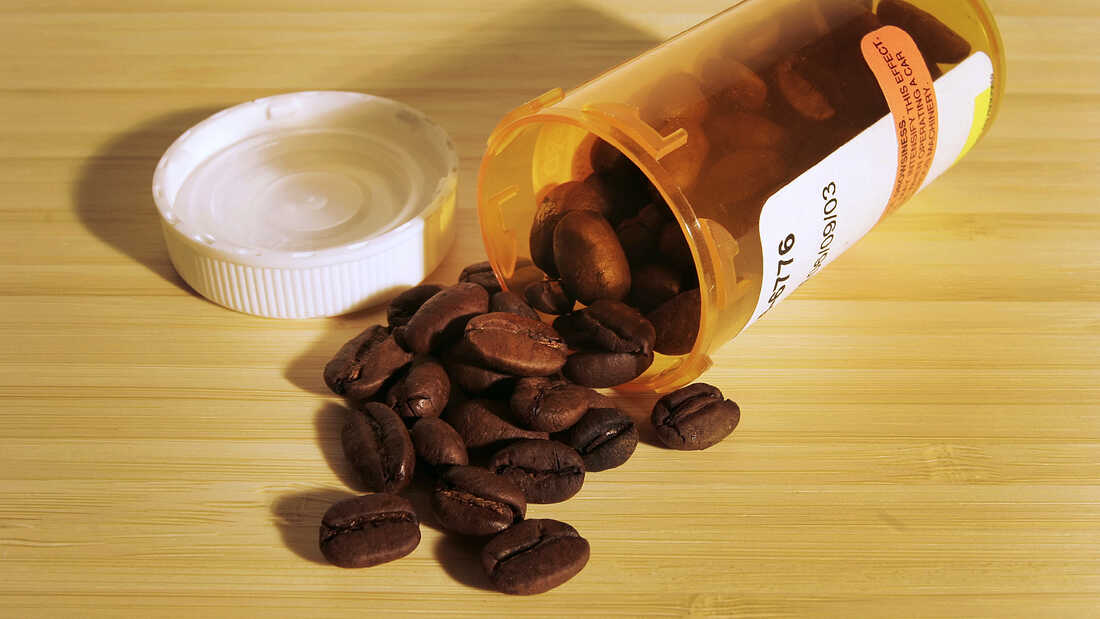

· By Joe Farafontoff
An Overview of Quitting Caffeine
Quitting Caffeine - A Guide
Caffeine is a popular stimulant in coffee, tea, sodas, energy drinks, and other beverages. Caffeine, when used correctly, can help you wake up and concentrate. It will boost your energy and reduce fatigue. If you use it irresponsibly, you may become dependent on it or experience headaches and insomnia.
What Is Caffeine?
Caffeine is the stimulant found in coffee, tea, soda, and chocolate that reduces tiredness, increases alertness, and provides an energy boost. If you're not careful, it can cause insomnia, dehydration, headaches, and high blood pressure. Many individuals use caffeine to help them wake up, perk up, and concentrate.
Caffeine is a white, bitter substance in over 60 plants, including tea leaves, coffee beans, and cacao pods used in chocolate production. Caffeine is classified as a food additive as well as a drug.
Caffeine levels in food and beverages vary. The caffeine content in a serving of tea or coffee varies depending on the brand, the kind of leaves or beans used, how it is prepared, and how long it steeps. Coffee can contain as little as two milligrams of caffeine per cup (decaf coffee) or 200 milligrams per cup.
The average cup of tea contains about 40 milligrams of caffeine, but it can span from nine to 110 milligrams. Twelve ounces of soda/soft drink typically contains 30 to 60 milligrams of caffeine. Eight ounces of an energy drink contains between 50 and 160 milligrams of caffeine.
What Is The Impact Of Caffeine On The Body?
Caffeine enters the bloodstream via the stomach and small intestine. Caffeine enters your bloodstream and stimulates your central nervous system (nerves, brain, and spinal cord), making you feel more awake and alert. Caffeine improves focus and concentration while decreasing fatigue. Caffeine also triggers acid release in the stomach, so you may experience heartburn or indigestion after consuming it.
When you consume caffeine, dopamine signaling in your brain is increased. Dopamine is a chemical that aids in the regulation of motivation, emotions, and movement. When the signaling increases, you become more alert and awake.
How Much Caffeine Is Too Much?
The average adult consumes 200 mg of caffeine daily in the United States; this is equal to two 5-ounce cups of coffee or four 12-ounce colas. Most people have no problems with 400 mg or four cups of coffee daily. Caffeine, however, affects people differently depending on their gender, size, and sensitivity. Even moderate amounts of caffeine can cause insomnia (difficulty sleeping), anxiety, rapid heart rate, and feelings of restlessness if you are caffeine sensitive. Experts in health and nutrition agree that drinking more than 600 mg of caffeine per day (like four to seven cups of coffee) is excessive.
What Are The Signs Of Caffeine Over-Consumption?
Caffeine over-consumption symptoms include:
- Nervousness, dizziness, and headaches
- Feeling jittery or shaky
- Insomnia or irregular sleep
- An abnormal or racing heartbeat
- Increase in blood pressure
- Dehydration
Who Should Avoid Caffeine?
Caffeine consumption is not recommended for everyone. Inquire with your doctor about how much is appropriate for your specific needs. If may avoid caffeine if you:
- Have ulcers or GERD
- Are pregnant or breastfeeding
- Have sleep disorders like insomnia
- Have high blood pressure
- Suffer from migraines or chronic headaches
- Take stimulants, antibiotics, asthma, and heart medications, as these medications may interact with caffeine.
- Have anxiety
- Are a child or a teenager
- Have an irregular or fast heart rate
Is Caffeine Addictive?
Caffeine tolerance develops in many individuals. This means that your body adjusts and becomes accustomed to consuming caffeine daily. You may need to increase your caffeine intake over time to achieve the desired effects of alertness and concentration.
Caffeine can cause dependence in your body, but it is not an addiction. You become "dependent" on caffeine and "addicted" to drugs.
What Are Some Caffeine-Reduction Strategies?
Reduce the amount of caffeine in your diet gradually. Don't make the mistake of stopping altogether. You will most likely experience withdrawal symptoms and return to drinking soda or coffee or taking a headache medication containing caffeine to alleviate the symptoms. This restarts the dependency cycle from the beginning. One of the most common reasons individuals continue to consume caffeine is to avoid withdrawal symptoms.
To successfully reduce caffeine consumption, gradually reduce your daily intake of coffee, soda, tea, and energy drinks. Begin by replacing cold caffeinated beverages with water. Water is a healthy option that satisfies the need for a beverage. Water also flushes caffeine from your system and keeps you hydrated.
If you drink coffee, gradually transition from regular to decaf. Alternate between decaf and regular coffee at first, then gradually increase the amount of decaf and decrease the amount of regular coffee. Reduce caffeine consumption gradually over two to three weeks to change your habit without experiencing withdrawal symptoms.
Shroof – The Best Coffee Alternative:
This delicious blend of ten organic ingredients is the best choice for individuals looking to decrease their caffeine intake. Containing only 1/5th of caffeine found in a cup of coffee, Shroof will help your caffeine dependency while making sure you don’t experience any caffeine withdrawal symptoms.
Visit shroof.com and shop online to get your hands on this nutritious blend.
